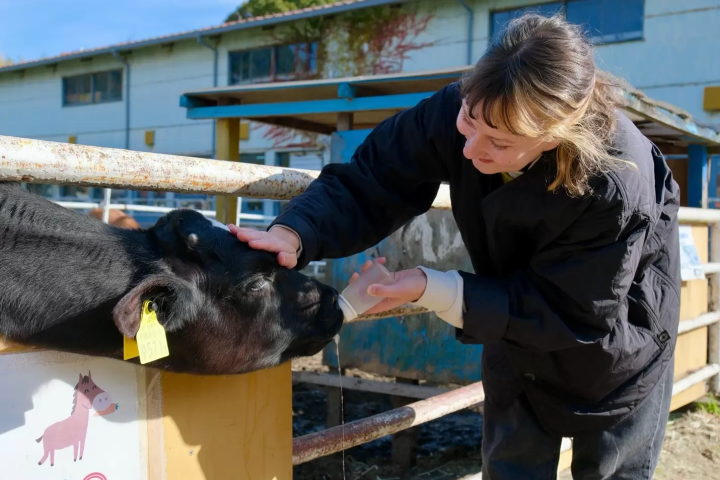The mystical torii gate on the lake! Ryusenji Temple, a temple with a spectacular view in Okayama

Torii gates found at sea or lakes, such as those at Itsukushima Island Shrine and Hakone Shrine, are mysterious. It even exists in Okayama Prefecture ! We'll introduce you to Ryusenji Temple, located in Kita Ward, Okayama City .
Ryusenji Temple

Ryusenji Temple, located in Shimoashimori, Kita-ku , Okayama Prefecture Kita Ward, is said to have been built by Hoon Daishi, who underwent mountain asceticism during the Nara period. It has also long been a place of folk worship for the water god and Inari. The current buildings, including the temple, and Ishigaki were constructed in the early Meiji period.
Hydrangeas add color to the moist, rainy scenery, including the temple office, pine trees, and the Saka near the parking lot, which offers a panoramic view of the worship hall.
It's like a world of Japanese folk tales

The large lake and the vermilion torii gate standing there are like something out of a Japanese folk tale! It's very rare to find a lake so large that it takes nearly 40 minutes to walk around it within the grounds of a temple.
The scenery spreads out before you, making you feel as if you have entered another world.
A large vermilion torii gate

The torii gate may look small in the photo above, but that's because it's set against a large pond. When you compare it to the people, you'll see that it's actually huge!
The beautiful song of the Japanese bush warbler echoes even more off the mountains. The calm lake surface ripples slightly, and many swallows occasionally skim the surface to feed. The water is very clear and beautiful, and small fish and something that looks like shrimp are swimming in the pond.
A vast lake called "Ryuo Pond"

This lake is called Ryuo Pond. This large pond is enshrined as the sacred object of the Eight Great Ryuo. The Eight Great Dragon Kings are dragon gods and gods of water. They are said to transform into eight different forms in response to people's wishes and save them. They have the power to make it rain, and are gods associated with water, such as those who pray for rain, ensure bountiful harvests, and refine iron.

Very cute zodiac statues

Within the temple grounds, there are adorable stone statues of the zodiac animals. Each animal has its own special blessing, with inscriptions such as "By touching the paw of the strong and brave tiger, you will gain the power to ward off evil spirits and protect your family."
Everyone has their hands up, so you can high-five the animals!

High-fiving a cow! However, when I looked at the instructions again later, I found that "by touching a cow's udder, which is a source of nutrition, you can gain vitality and energy to live a long and healthy life."
I had touched the wrong place... Many of the zodiac animals have instructions to be touched, but the place to touch and the blessings for each one are different, so please read the explanation on the pedestal before touching them!
A waterfall where you can practice waterfall training

This waterfall is known as "Saigo no Taki" (Mogami Beautiful Waterfall) or "Dragon King's Waterfall." Surrounded by natural trees, clear water springs from several places, and climbing the stone steps leads to many shrines and Inari shrines. The sound of the waterfall and the spray are refreshing and full of energy, making it a true power spot!
Apparently, the general public can also participate in the waterfall training, and if you make a reservation in advance by phone, they will even lend you a training robe.
Ryuo Falls

The Dragon King has a squiggly, arched body and a fierce face. The experience of being hit by the waterfall that flows from it will surely leave you feeling energized.

There are small waterfalls in several places, and you can hear the sound of water everywhere. In the Oku, there is a small Inari shrine and a torii gate, and the moss-covered rocks. The beautiful scenery and air are calming.
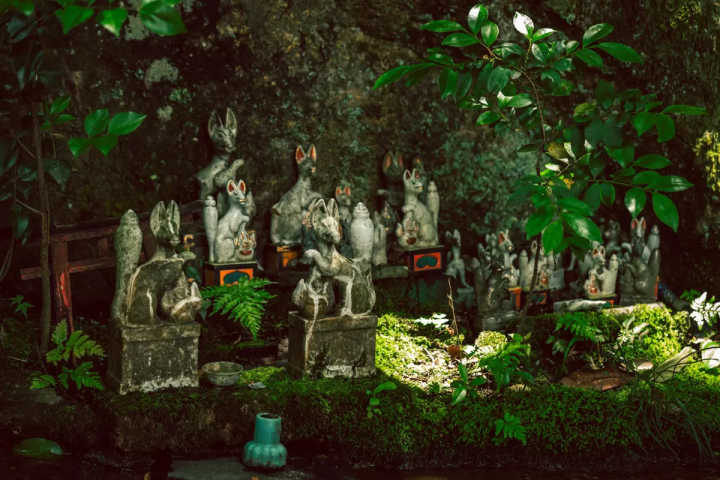
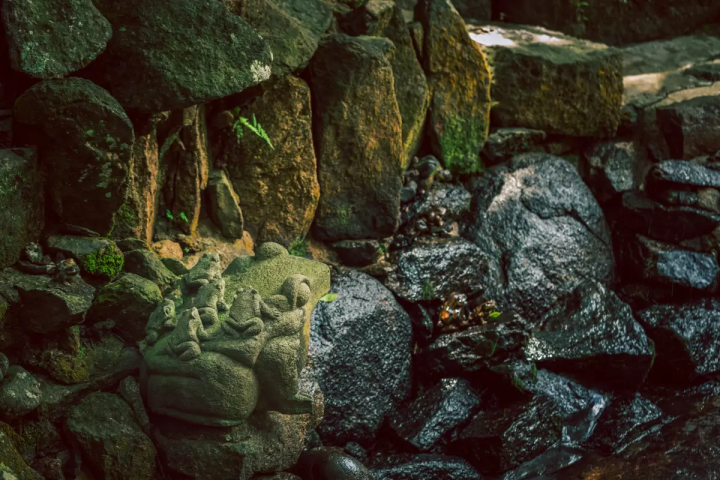
There are many statues and shrines in various places, so try to find them all! There is plenty to see!
Carp Rock and Narrow Paths with a Historical Feel

This large rock called Koiwa (Carp Rock) resembles the head of a carp. The narrow path beside it is said to be the path used by Toyotomi Hideyoshi when he attacked Takamatsu Castle in Takamatsu.
"Taiko Koshikake Rock" where Toyotomi Hideyoshi sat!

The narrow path next to Carp Rock was also used by Hideyoshi during his marches, and he probably took a rest here during his marches.
This "Taiko Koshikake Rock" is located near the Ryusenji Temple parking lot.
Substitute Jizo

In the past, there were many robbers and bandits in this area who would rob passersby and travelers of their valuables along the road, so a substitute Jizo statue was erected to protect the local people. The original Jizo statue that was erected is the one on the far right, surrounded by a fence.
Koiwa Marsh

This is Koiwa Marsh near Koiwa Rock. The grass was lush and green. There is a boardwalk bridge that leads into the marsh. There is a weight limit, and only three people can ride on it. Ryusenji Temple is also rich in nature, and is home to highly poisonous vipers, Japanese rhinoceros beetles, hornets, and ticks. We recommend visiting wearing long sleeves to protect yourself.
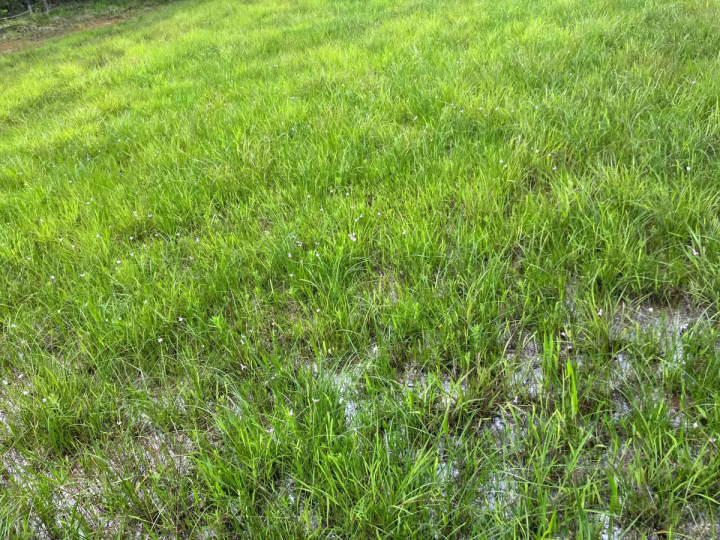
(Photo taken in late May 2023) If you look closely, you can see small flowers in bloom. This photo of a tokisou was taken in late May at Koiike Wetland. It seems to be a member of the orchid family. When you think of orchids, you imagine something large, but there are also some that are this small. In mid-August, the egret flower blooms.
Jyogyo Bodhisattva statue and lucky cat Jizo


Touching the palm of the lucky cat Jizo statue will grant you a prayer for your pet's health. Ryusenji Temple is also attractive for its cute elements, such as the zodiac statues and this beckoning cat.
Yurahime (Yurahime)

The character in the upper left corner of the sign is Yurahime, a dragon goddess. She is said to be a character based on Yurahime, one of the eight great dragon kings enshrined at Ryusenji Temple. She is very friendly.
Move it with just one finger?! Yurugi Rock

There are many large rocks within the shrine grounds. One of them is the Yurugiwa Rock. Sanzenkan is 11,250 kg, or 11.25 tons. Can you really move such a large rock with just one finger? Let's give it a try.
Will the Yurugiwa rock move?

Does it move if you press it with your finger? It didn't move for me.
If you have supernatural powers, you might be able to move it. Try pressing it with your finger.
Seasonal flowers

Ryusenji Temple also has a water lily pond. The Tomboike Wetland is located a little way up from the parking lot. It was just the time of year for the water lilies to bloom, and there were many white water lilies in full bloom. It was both pretty and somewhat mystical.
Dripping hydrangea

Beautiful, deep blue hydrangeas. Hydrangeas are often thought of as pale colors, but these hydrangeas are a deep blue.
Dragon God's Pine
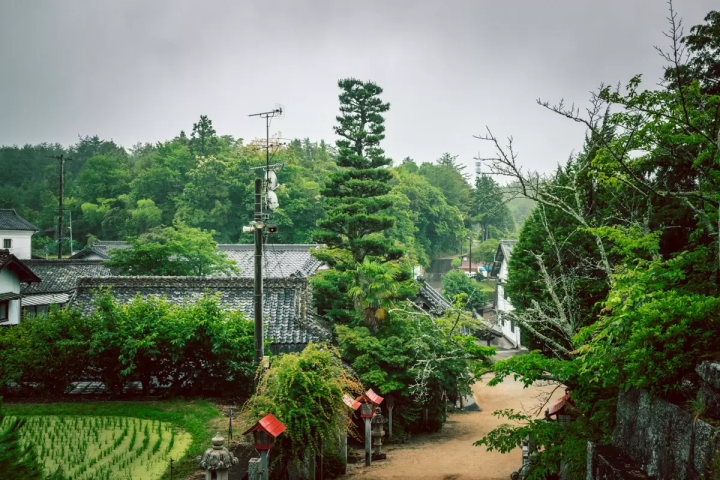
There is also a tree associated with dragons here. A very tall pine tree. It is called the "Dragon God's Pine" because it looks like a dragon rising from it, and is said to be 250 years old.
worship hall

Magnificent roof tiles! And gorgeous carvings. Ryusenji Temple enshrines the Eight Great Dragon Kings. The Eight Great Dragon Kings are gods of water. This photo was taken during the rain showers brought by the Eight Great Dragon Kings.
Main shrine
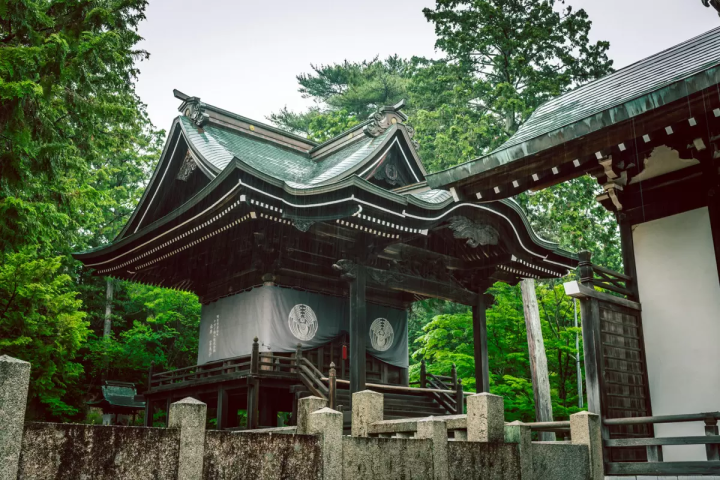
This is the main hall, located at the Oku of the worship hall. The principal image is the Supreme Sutra King Great Bodhisattva. It is open to the public once a year on the first day of the horse month in February.

In addition to the places we have introduced, there is also Kishimojin enshrined here and many Jizo statues.
There are plenty of things to see, including the mysterious Ryuo Pond and torii gate, as well as cute stone statues, so be sure to check it out!
[Mogami Motoyama Ryusenji Temple]
Address: 900 Shimoashimori, Kita Kita Ward, Okayama City
TEL: 086-295-0130
Okayama Prefecture is located in the Center of Western Japan and is known as the "Land of Sunshine" due to its warm climate and little rain throughout the year. It's conveniently located halfway between famous tourist destinations like Kyoto, Osaka, and Hiroshima! It's also the gateway to Shikoku via the Seto. Okayama is also known as the "Fruit Okayama," and the fruits that are sun-drenched in the warm climate of the Setouchi are of the highest quality in terms of sweetness, aroma, and flavor. You can enjoy seasonal fruits such as white peaches, Muscat grapes, and Pione grapes! Okayama is also home to world-class tourist spots, including Okayama Castle, Okayama Korakuen Garden, one of Japan's three most famous gardens, and Kurashiki Bikan Historical Quarter, which boasts history, culture, and art!
The contents on this page may partially contain automatic translation.



























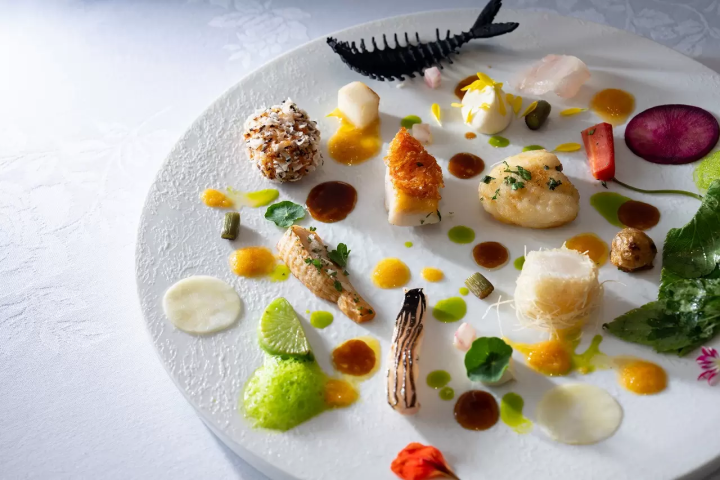
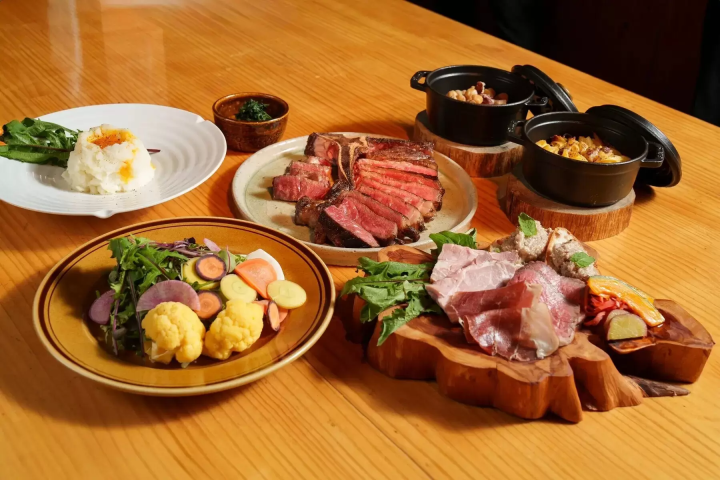
![[Company Visit List] Learn from Japanese Business Leaders: Factory Tours & Corporate Visits in Southern Osaka Featuring Manufacturing Technology and Management Philosophy](https://resources.matcha-jp.com/resize/720x2000/2024/12/13-215168.webp)
![[Recommended accommodation in Ureshino Onsen] 1.5 hours from Hakata Station! Enjoy Japanese tea and skin-beautifying hot springs at Saga Ureshino Onsen URESHINO YADOYA](https://resources.matcha-jp.com/resize/720x2000/2025/06/14-236549.webp)
